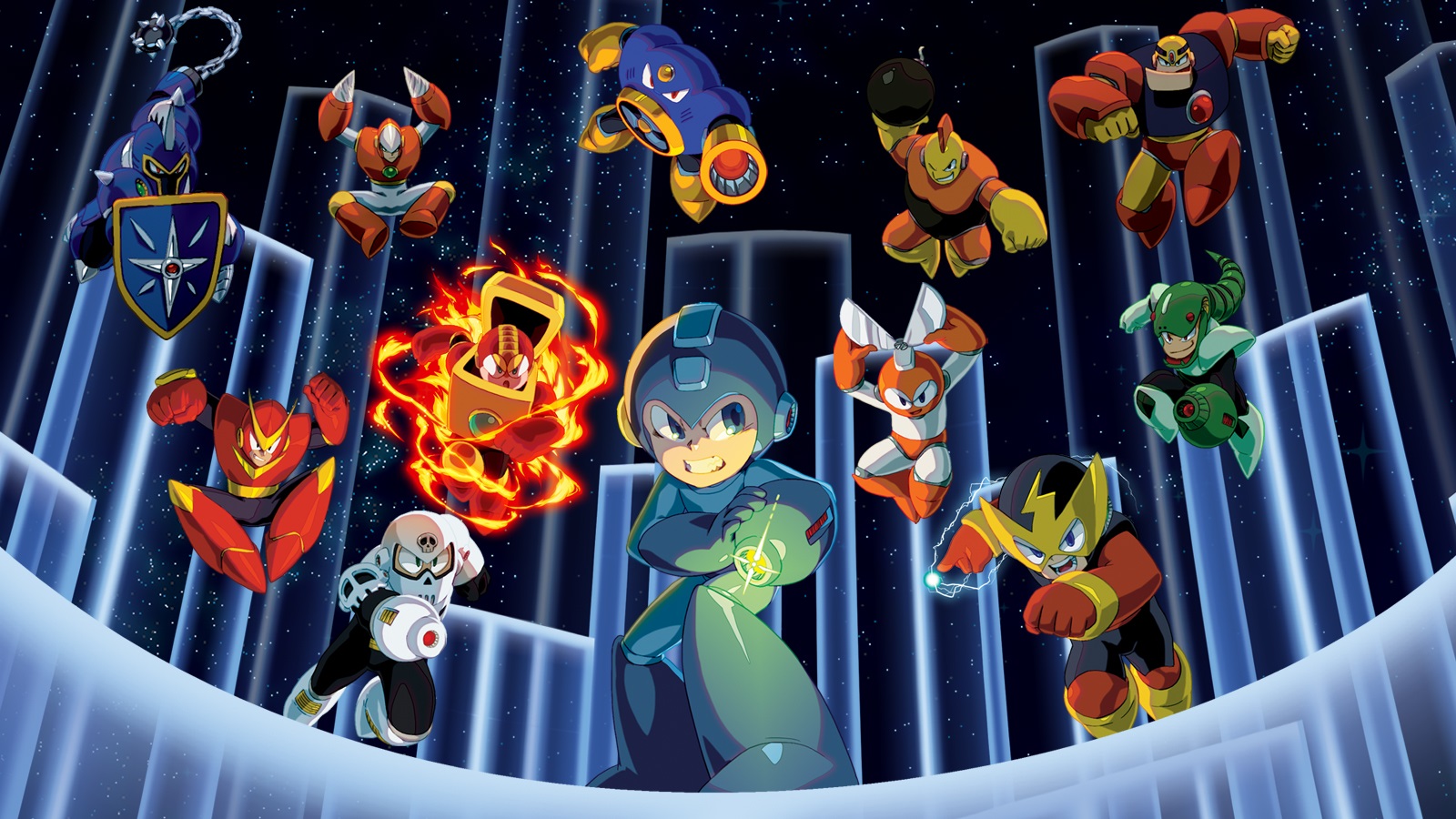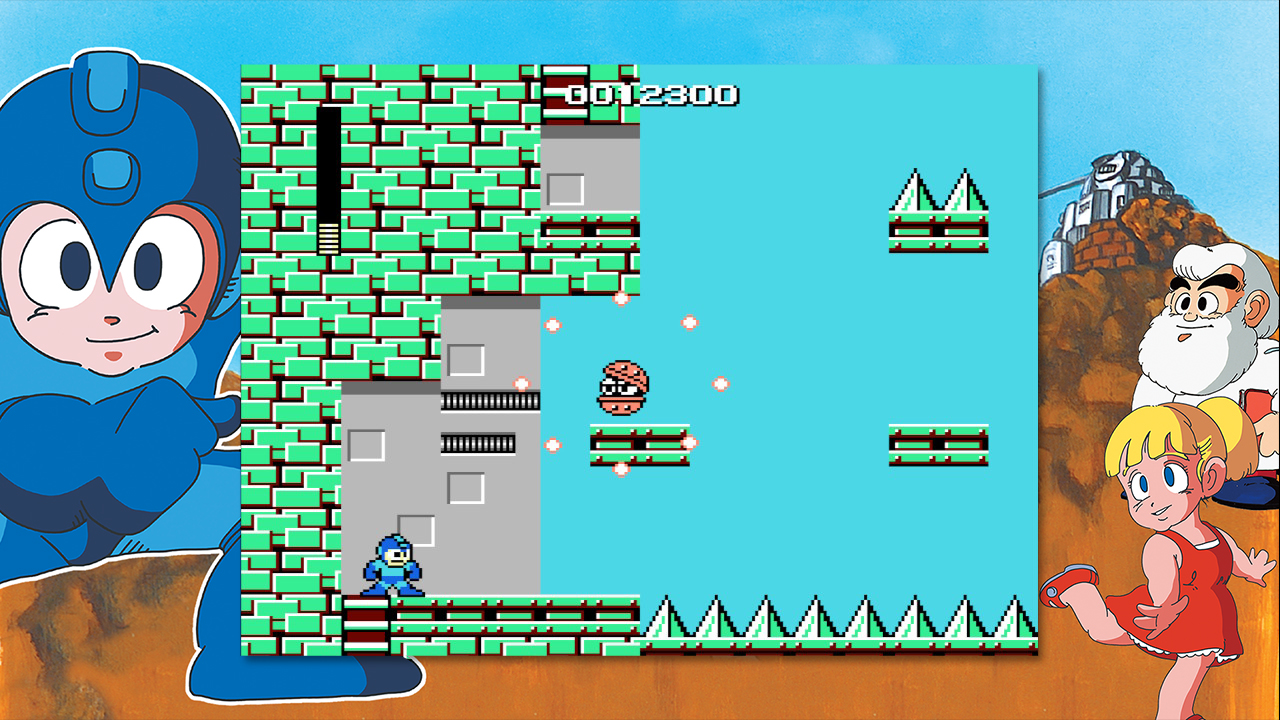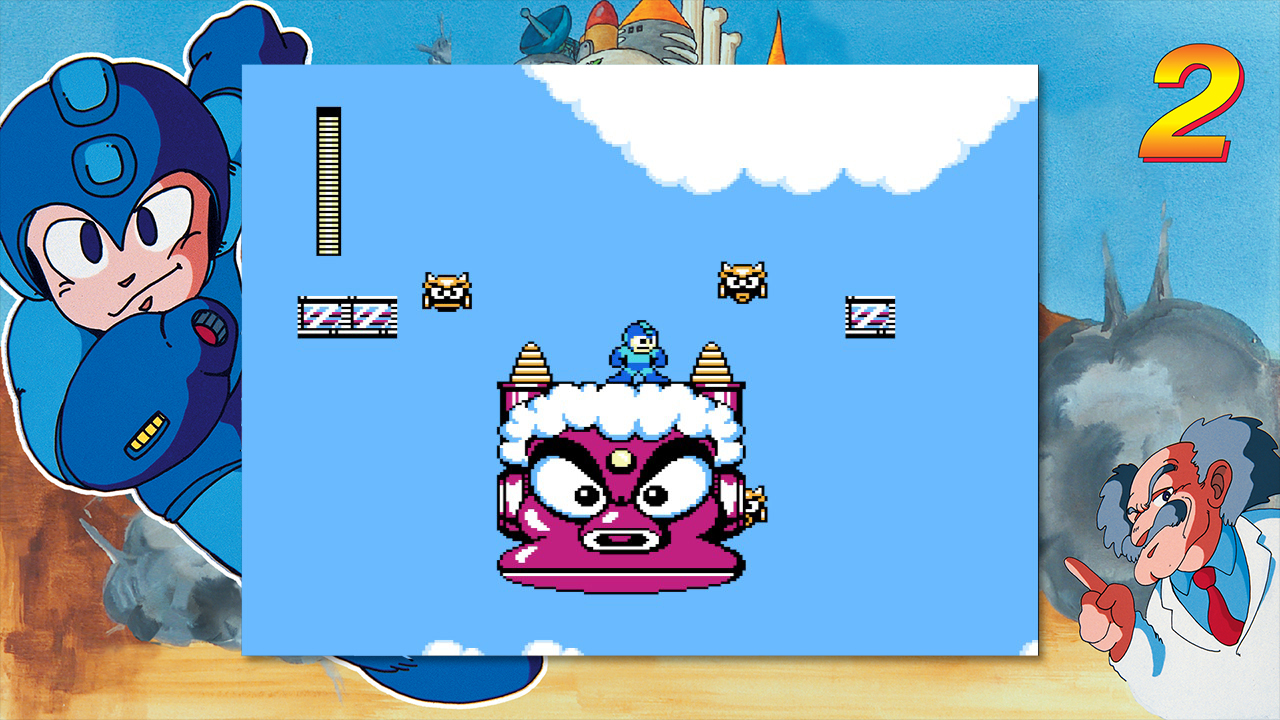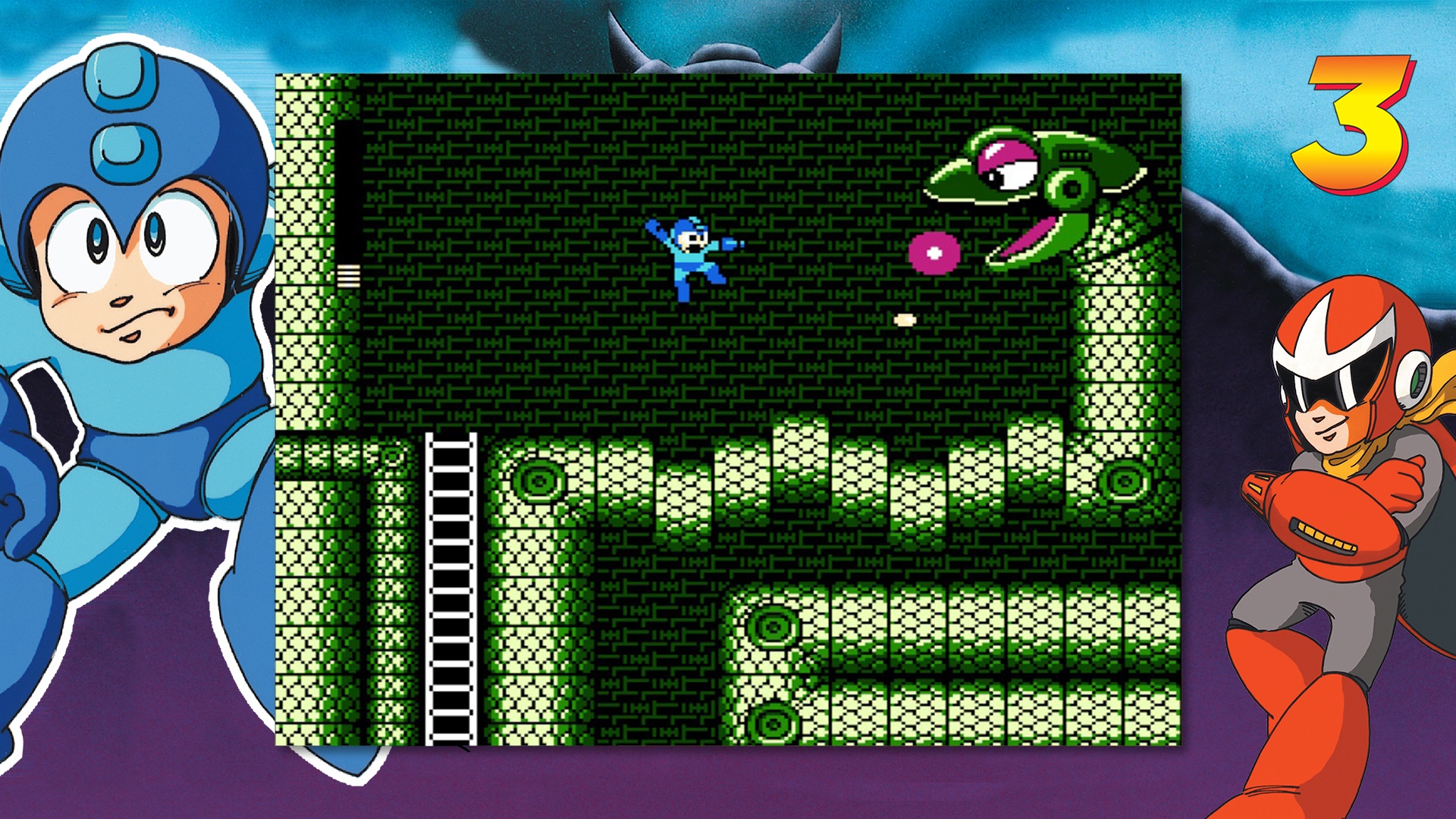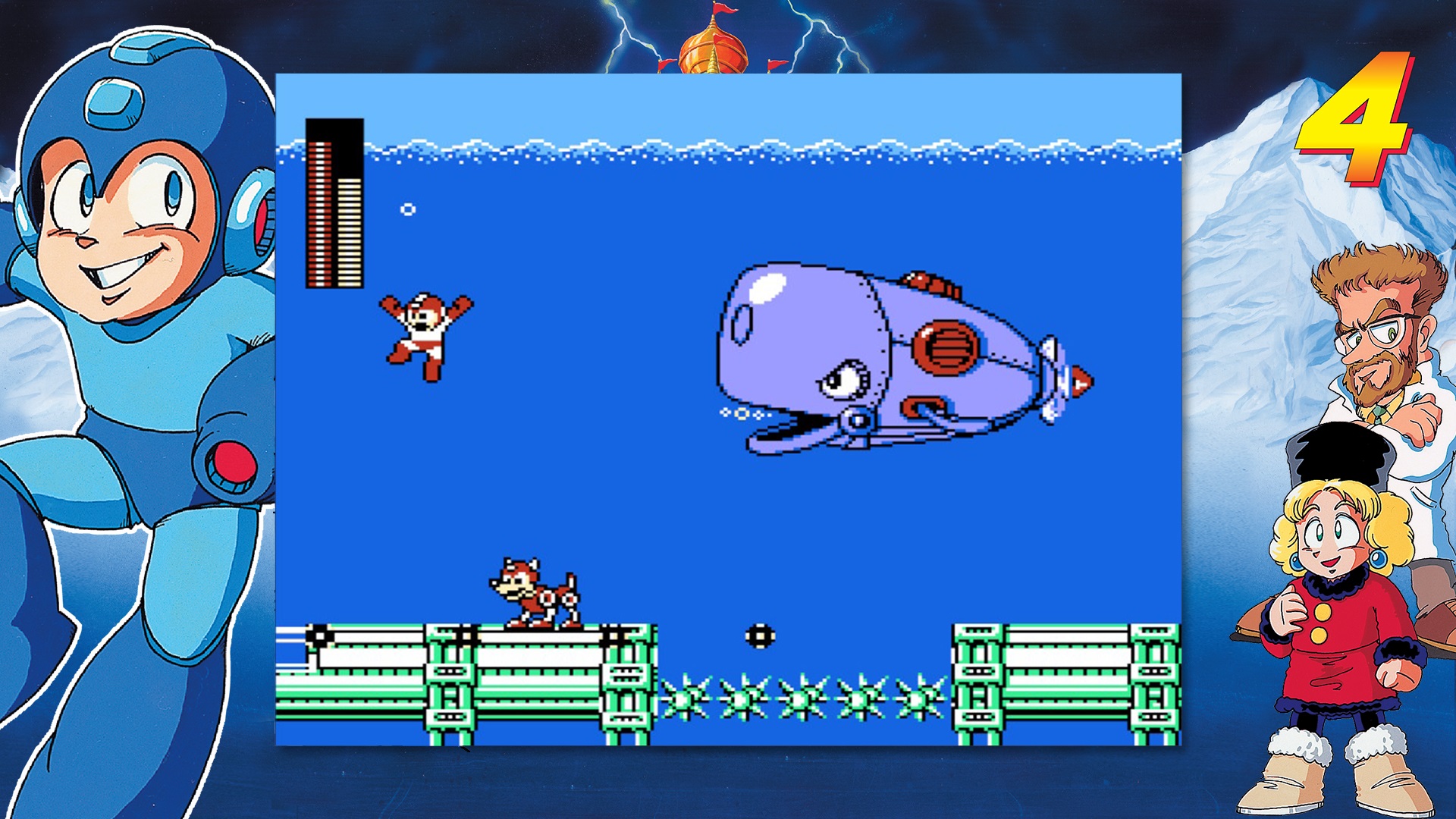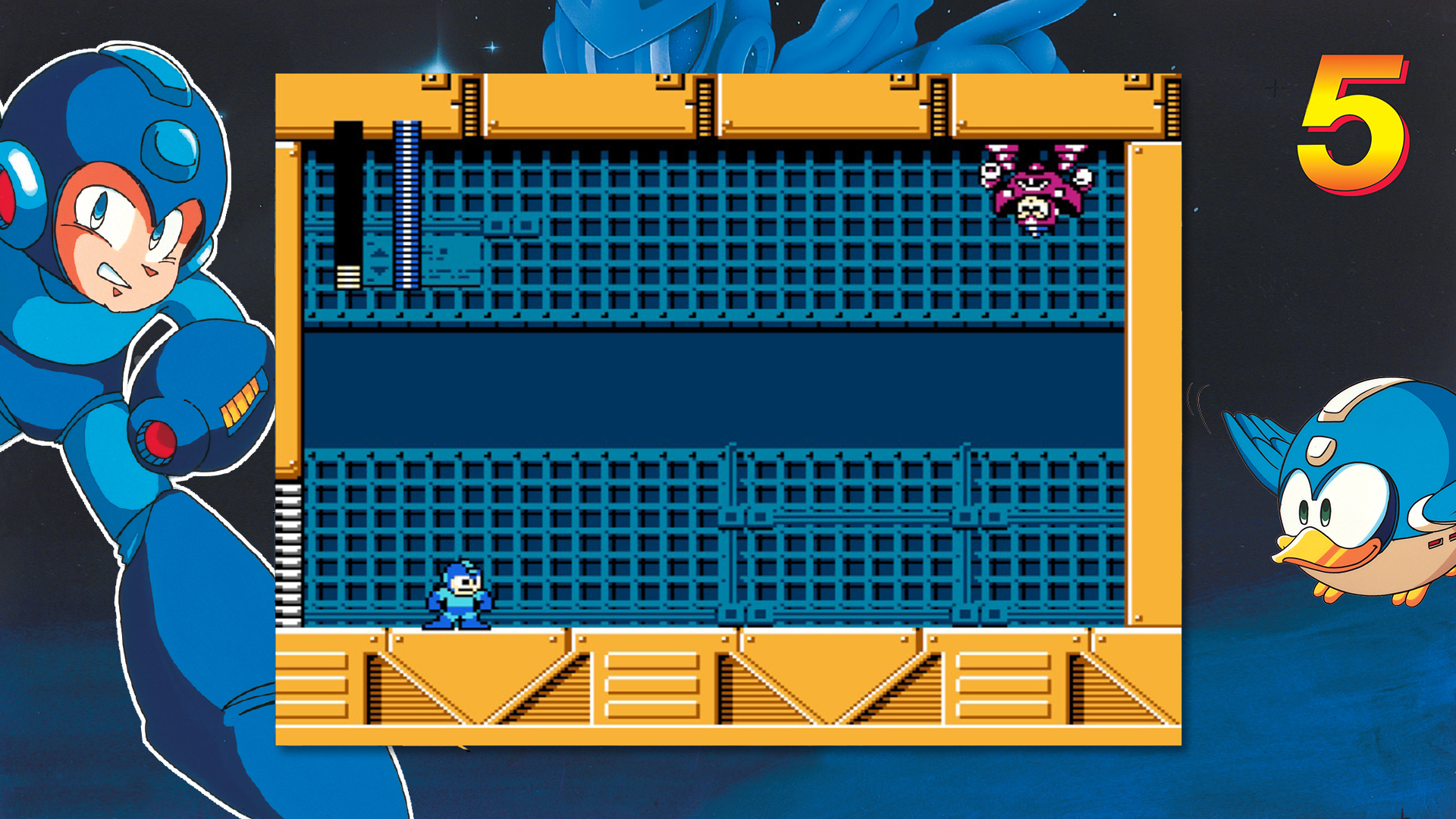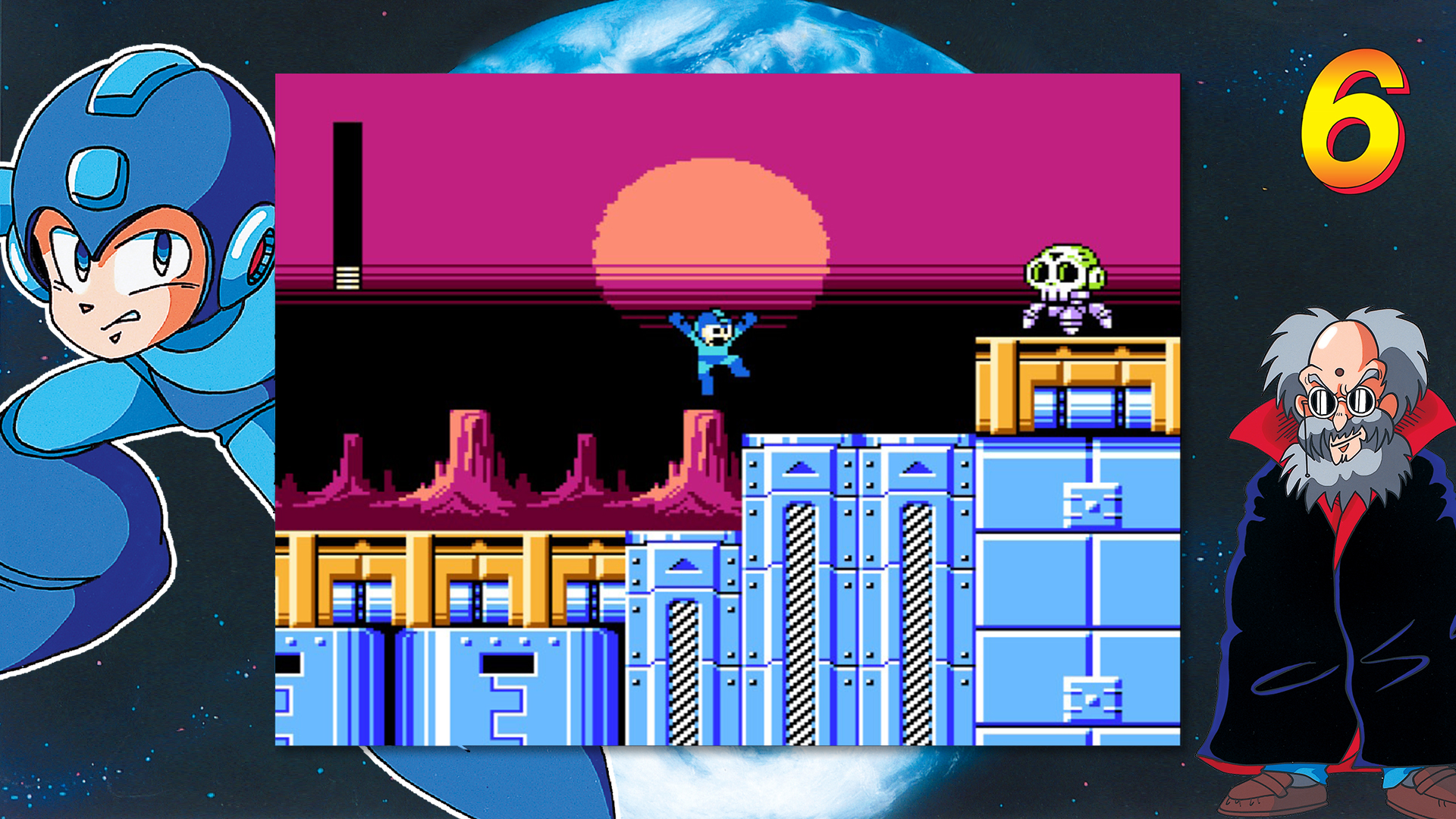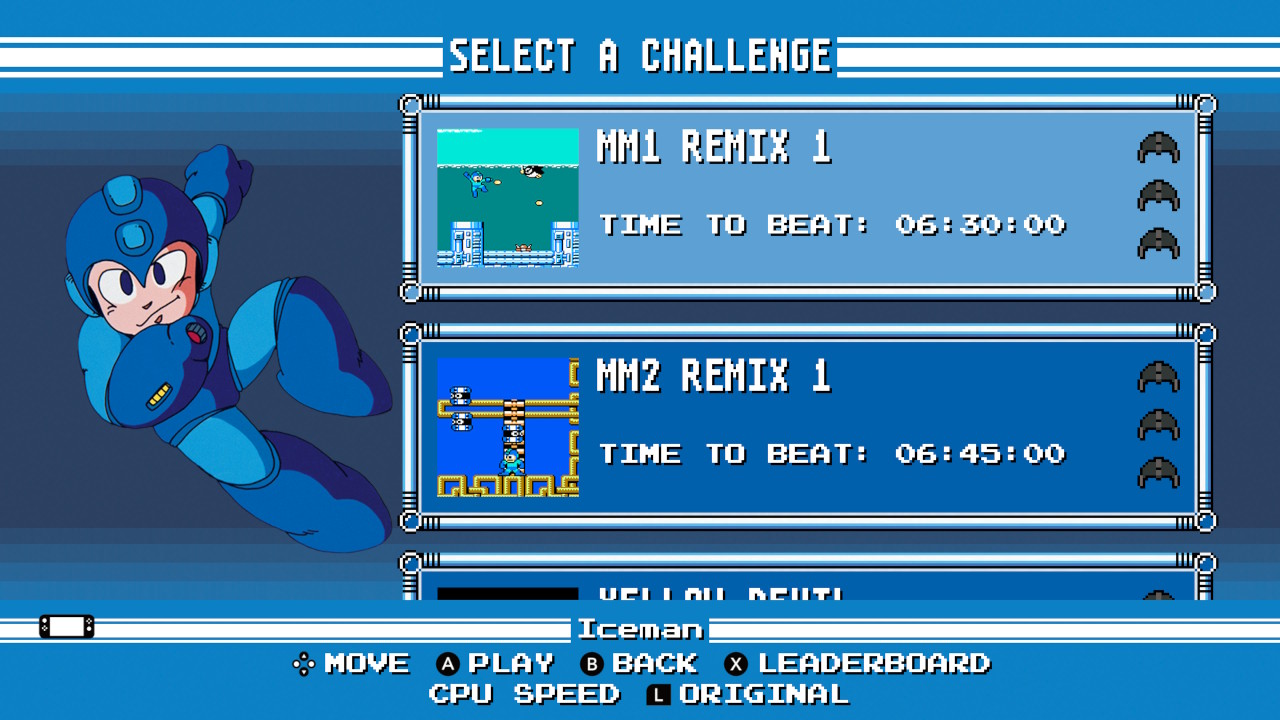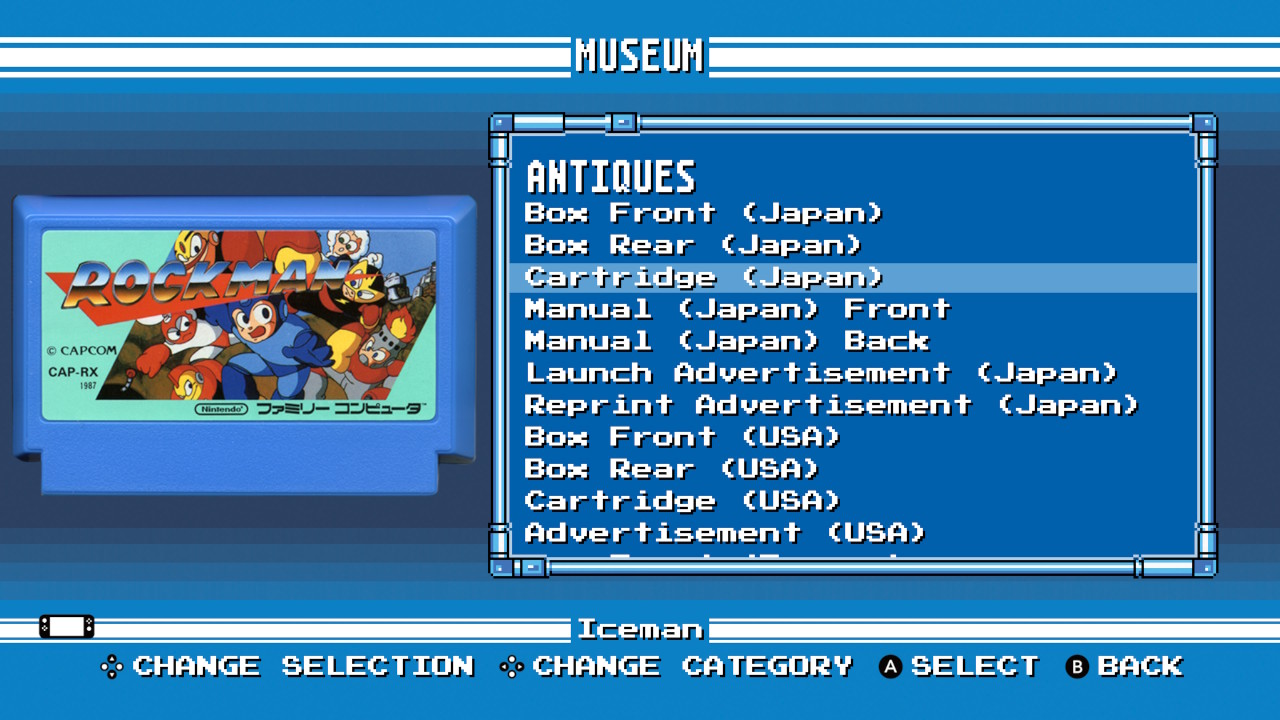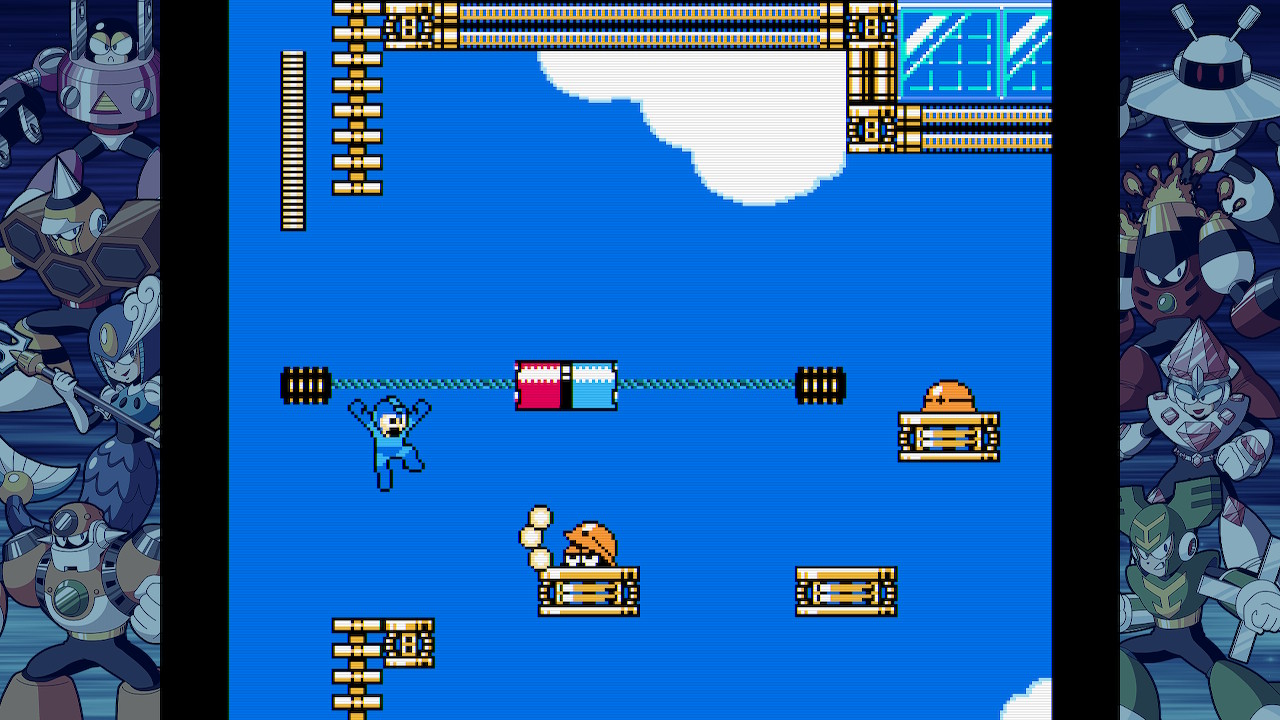Mega Man. As a shirt I own says, he has been running and gunning since 1987 – a figure that, at one time, was almost as universally known as Mario and Sonic. Unfortunately, due to the overly long absence of any new games, fewer new gamers even know of Mega Man and older gamers have either moved on or have silently lamented the apparent death of the blue bomber. While the original Mega Man Legacy Collection has seen a previous release on the PS4 and Xbox One, it didn’t garner the excitement that the Legacy Collection launching on Switch has. This is mostly due to the fact that the Switch release of Legacy Collection 1 + 2 was announced at the same time as Mega Man 11, as well as Mega Man X Legacy Collection 1 and 2. With Capcom finally supporting the series again, do the original exploits of the Blue Bomber hold up after 30 years?
Mega Man Legacy Collection 1 + 2
Publisher: Capcom
Developer: Capcom
Platform: Windows PC, Nintendo 3DS, Nintendo Switch (Reviewed), PS4, Xbox One
Release Date: May 22, 2018
Players: 1 Player
Price: $39.99
To begin with, yes, these are the same games many of us grew up with. There have been no changes made to the level design, gameplay, enemy patterns – nor any of the things you’ll remember from yesteryear. Capcom and Digital Eclipse did a fantastic job porting these games from their original systems to the Switch.
Granted, the graphics have been cleaned up slightly, the music sounds better while still being the same tune, as per usual with remaster upgrades. However, that is not to say that there were not some extra bonuses for players who decided to purchase this collection for the first, second, or even third time.
The Switch versions of Legacy Collection 1 and 2 offer up over 100 new and unique images not found in previous versions, including box arts, cartridges and Japanese manuals. I do wish they had included the original English manuals as well, just so that I could revel in a bit more nostalgia.
The Switch version (as well as the 3DS version) for the Legacy Collection also includes amiibo support with the original Mega Man amiibos for Smash Brothers. Finally, for Legacy Collection, a rewind feature was introduced which drastically reduces the difficulty of the original six games for those that choose to use it.
Realistically speaking, there are just too many games in this collection to mention each and every one of them, with ten games being included on the cart coupled with the download code for Legacy Collection 2. That said, each of the 10 games play extremely similar to each other, with certain games bringing in slight variances.
For the sake of those who have never played a Mega Man game before, the premise is simple: these are old school platforming-action games. You travel from one edge of the screen to the other, jumping over obstacles and enemies while shooting enemies you can’t avoid with your main weapon, the mega buster.
Each stage has several hidden items that you need like a specific power up or boss weapon to acquire, and at the end of each stage, you will face off against that stages specific Robot Master. The unique thing with Mega Man is that each boss will offer up a specific boss weapon, which will be extremely powerful against one of the remaining boss enemies.
Once each of the eight Robot Masters has been defeated (or six in the case of Mega Man 1), you will need to traverse Wily Tower. This final stage is usually a gauntlet like excursion where you will be forced to continue on with no refill of life or weapon energy for anywhere between 4 to 8 stages, culminating with a 2 phase face off against Dr. Wily, the series main antagonist.
There has been almost no deviation from this tried and true formula over the the course of 10 games, with even Mega Man 9 and 10 following suit and staying true to the series over all gameplay mechanics, something not many long running series which saw revivals throughout their history can tout.
For older gamers looking for a return to the “Ninten-Hard” era of gameplay and wanting some very solid platforming or for newer players looking for something a bit different, this will be very welcome. For others, who may not be accustomed to the difficulty that these games have and wanting a bit of variation in their gameplay, you’re looking at 10 games that are all but identical in their basic mechanics.
As I said, some games do offer up a bit of change. Starting in Mega Man 3, Mega Man gains the support of Rush, a robotic dog that will offer up different powers depending on what you choose (these usually include flight, armor, and jump) and the ability to slide, which becomes a mainstay of the series for almost all of the proceeding games.
Later games also offer up a shop function, either run by Auto or Roll, where the player can find bolts throughout each stage and as an enemy to purchase power ups, energy/life recovery items or extra lives. Beyond just those things, Legacy Collection offers up a new mechanic I touched on briefly earlier: The Rewind Mechanic.
Only offered up in Legacy Collection, by pressing L, the player has the ability to rewind up to about 2 minutes of gameplay, allowing them to prevent a lost life, a bad hit, find the Robot Masters pattern – or just to replay a segment of the stage they wish they had done better.
Be warned though, this absolutely destroys any sort of difficulty one may find in the original 6 games. This is fantastic for new comers to the series or for younger players, however veteran platforming gamers may see this as almost an insult.
I found it useful a few times in the original games, just because the hit boxes for enemies and projectiles were at times incredibly frustrating, but just be warned, use this function at your own risk if you want to preserve the intended difficulty of the original games.
In terms of story, there are just too many games to give each of them their own segment. The stories in each game don’t vary much, with the possible exception of Mega Man 8, but only because Capcom attempted to go with a heavier story for that installment of the franchise.
The general layout of any Mega Man game is fairly simple: Dr. Wily does something/convinces the Robot Masters/Betrays someone and Mega Man must face the 8 Robot Masters to correct the issue. Each installment of the series varies slightly on this general formula..
Personally, I’ve never minded this much. Yes, it would be nice to have a Mega Man game with a bit more story, which is probably why I enjoyed the eight game as much as did, but it has never been a big issue.
For players looking for just some great, albeit formulaic, old-school platforming gameplay, the story won’t matter much. For others, the fact that you just know what’s going to happen each game might be a bit draining. All I’m saying is don’t jump into any of the Mega Man games in this collection expecting robust storytelling.
The story in Mega Man games is just there mostly as window covering for the gameplay. The small differences between games can be fairly interesting if you pay attention to the opening and closing scenes of each game. Mega Man 9 alone shows that Dr. Wily isn’t necessarily a complete narcissist megalomaniac purely seeking world domination.
The soundtrack in the Legacy Collections was very well preserved and enhanced. We still have the same music from the previous games, complete with the clanging boops and bleeps from the 8-bit days. The classic Mega Man theme and boss themes are still intact and as catchy as ever.
It is fairly interesting to hear how the different themes and effects evolved from the earliest of the 8-Bit Nintendo days to the then current PS3 with it’s much better sound quality and processing. For the musically inclined, if you so wish, you are able to listen to each games music tracks through the extras menus found in each collection.
The Mega Man series stands amongst some of the best platforming games the hobby and industry has ever produced. Mega Man himself once stood alongside Mario and Sonic as one of the most recognized video game characters out there.
The Mega Man Legacy Collection helps bring a whole new generation into the Mega Man fandom and allow older gamers to relive some of the best platforming games out there. While the games themselves may vary from game to game, the overall quality of the series is plain for most to see.
The few quality of life additions to the older games really help bring younger and newer players into the series. Beyond all that, all of the extras included in the collections, from the museums to the sound players allow fans to gain more insight in to the series like never before.
Since this is a collection of games, reasonably, the review should reflect the overall experience a player should expect if they were to play through each game in said collection. Because of that, the Legacy Collections are not perfect, just because some of the games are extremely easy while others are blindingly hard.
There are parts of the collection that I feel are missing, such as English translations of the original manuals in the viewer. But as a whole, the Legacy Collections 1 and 2 still hold up under scrutiny, even with the wildly varying difficulty levels, the wonkyness of the earlier games and their hitboxes, as well as the few missing items that should have been included.
If you are looking for a fantastic trip down memory lane and want to experience some seriously solid platforming, by all means, get equipped with the Mega Man Legacy Collection.
Mega Man Legacy Collection was reviewed on Switch using a retail copy purchase by Niche Gamer. You can find additional information about Niche Gamer’s review/ethics policy here.
The Verdict: 8.5
The Good
- Excellent Platforming gameplay that spans 10 different games
- Tons of extras that expand on the history of the Mega Man franchise
- Rewind feature and extra armor option to help newer and younger players ease in to the series
- Online leader boards and all DLC from the different games included
The Bad
- Repetitive gameplay that may turn off players
- Extreme difficulty swings
- Legacy Collection 2 is a download code only, no physical edition available
- The rewind feature and extra armor option severely reduce difficulty, to the point where certain games laughably easy if used, extremely frustrating if not
